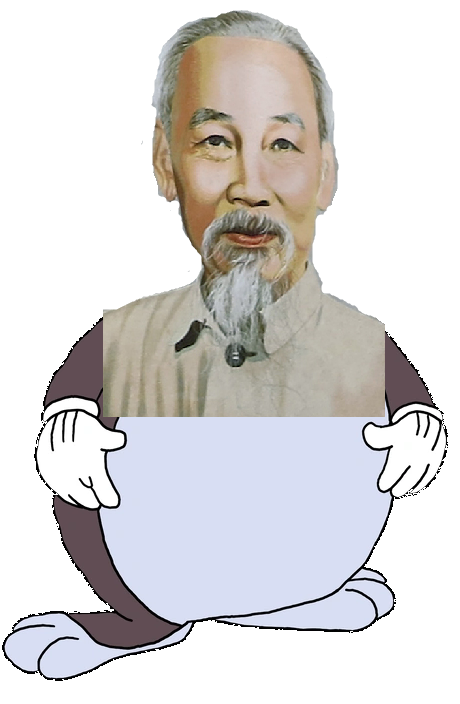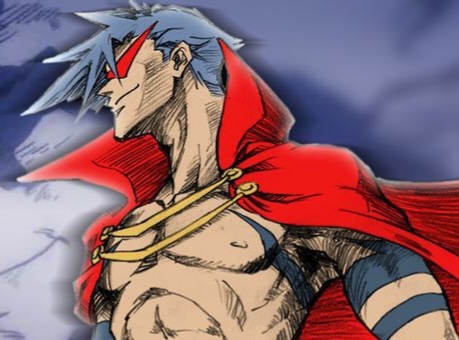Like, Roosevelt broke up monopolies, for instance. That stuff was insufficient, but it was SOMETHING. Unlike now, where they just let capitalists do whatever they want.
Roosevelt saved capitalism from itself, and the capitalists repaid him by committing to a 70 year political and ideological project to make sure it can never happen again.
Now I can kinda see why Lenin LOVED dunking on the Menshiveks at almost EVERY opportunity he could.
nothing in history has baffled me more than wondering how such a contradictory, shitty, system has remained chugging along for so many god damn centuries
I didn't realize I had so much in common with the system of capitalism.
Marx said that part of the growth of the proletariat would be organizing itself to the extent that it could extract concessions from the bourgeois state. Meanwhile the progressive petty bourgeois elements had a lot to gain from the breakup of monopolies, the nationalization of certain industries, and the expanding of democracy.
Today the American proletariat is weak and divided. The petty bourgeois has turned sour and reactionary without the leadership of the workers. The largest uprising in decades (2020) saw a single police station burned down and some windows smashed. What does the bourgeoisie have to fear?
As I recall lenin wrote in state and revolution that in times of revolutionary stress the state can act as a genuine arbiter between the interests of classes.
Roosevelt was president while the great depression was happening
wrong roosevelt, but the point is still true, as there were massive labor movements during Teddy's time. The anthracite coal strike was noteable because the US government sided with the workers and threatened to begin operating the mine with the military so the owners would get no profits.
Unions, especially the I.W.W had a lot to do with it. The government would often fight against (sometimes literally shooting at) people working to fix the problems capitalism was creating. Perfect example of this were the first Company Towns which were rife with abuse and just the best example of raw unfiltered capitalism and it was awful. Unions would go in and help them organize and break them out of the strangle-hold of power. The state did nothing as the business tyrants rained bullets upon their subjects. Then as soon as the unions finally win and dismantled these company towns, THEN they come in and claim credit for ending them. It's disgustingly common.
Part of it was because there was established capital (real estate, old plantation families, old colonial stocks and trader families), burgeoning industrial capital (railroad, steel, coal barons, Rockefellers etc.) and coming into industrial manufacturing capital (Ford, Edison, etc.), all of which had different interests. While they were often in line, much like with the international finance capital and local industrial capital today, there were disagreements that could be exploited for political gain.
For Teddy, being old money, much of the old money had been sidelined politically by industrial capital over the last half of the 1800's. So, they used the 'progressive' movement, which was itself a coopted movement from the descendents of the German 48ers (probably best described as radical socdem) movements in the Midwest (particularly cities such as Milwaukee), which was an incredibly popular movement, to break the backs of the monopolist trusts. However without the subsequent 'social revolution' that any actual 'progressive movement' follower had in mind (with redistribution of land being a priority), all that it set up was the political domination of old money financial capital and manufacturing capital for the 10's and 20's, which in part led to the old trust people moving more into military and intelligence politics (things that didn't rely on popular politicians).
Which one of the many reasons you should be wary of 'progressive' politicians in modern era. Cause classically, they have just been another way to legitimize capital power disputes using the language of labor.
Nowadays, capital is much more in lockstep. The only divisions are the two, and the trusts have totally captured the intelligence side of things (which didn't exist in before WWI). Now is the time of monsters.
Sadly, we may not even be at the end of it. It is likely our children or grandchildren that will see it happen. The lights are off, nobody is home, but the house will still stand for a few generations more.
Didn't Lenin say the same thing in 1915? You probably should never discount the sheer deathdrive of some of the people in charge. You never know when you might get a chance :chavez-guns:
Mine? Lol no I don't have any children and as the years go on it is unlikely I will have any despite my personal desires. I mean more generally 'humanities children'
What, do you expect communism to spring fully formed from the womb? It depresses me too, but that is the way these thing go. Maybe we won't even get communism and just another great empire cycle. History is a subject for masochists.
I’d never expect a total victory, but I sure as hell don’t expect the current paradigm to continue forever. It literally can’t. I want to be there during the rebuilding phase so I know whatever the fuck I’m doing actually matters- like the opposite of our neoliberal purgatory we have now.
All I ask is that I’m allowed to feel like a sapient being.
I can't think of the full quote right now, but something that helps me keep going is to "act as if you are at the start of a new civilization."
Tldr: The system needs to fuck up even more for change to be possible, but I am not advocating for acceleration. Find solidarity where you can. :Tldr end:
Yes, it absolutely can. Right now we are seeing Rome rise and Carthage fall, and that is definitely a good thing to watch, but that doesn't mean Hannibal still won't march on Rome. And this is despite the fact that neither Rome nor Carthage had nukes to actually prevent land armies from conquering territory. Until three things happen, the internal paradigm in the U.S. will not actually shift even if no one remembers exactly how to enforce it.
One, the internal police surveillance state must be weakened. This will likely happen naturally as crisis after crisis brings more and more people out, but at this point in time it is incredibly obvious that police tactics of organizing false flags, coopted protest, kettling, letting organizers deal with the mentally ill, and control of the narrative are far too strong to overcome, and infact lead to backfiring and legal strengthening of the security state when challenged. The Russian security state fucked up far too much during 1917, it is clear we will not have that luxury.
Two, the dollar must be weakened internationally. Far too many of our problems come from the fact that there is still too much money floating around the imperial system. Grifters on the left (even well intentioned ones) are easily able to abscond with people's money instead of their time. People are able to ignore others societal issues because of their alienation and treats. It's pretty clear that one of the things that makes a communist in America is either a) not having your shit together for a long enough time with some proper education to know that other countries handle that better or b) being a downwardly mobile school over achieving middle class person aka a nerd who was suckered by the liberal arts. These two things are not a large enough contingent to lead a revolution. Until those classes are expanded due to natural economic pressure, we are not close to revolution.
Three, the boomers must die. I don't mean we need to kill them, but their privileged anti-communist inputs into the system need to stop. It is clear that the future generations of politicians and economists are not as good at handling these sorts of class conflict, having gotten high on their own propaganda supply. However, that might lead directly to facism too, so who knows. Depends on how much they fuck it up and how quickly.
You wanna feel like a sapient being? Ok. Here it is. This is what the vast majority of humanity has felt like throughout history. Out of control of your circumstances and material conditions. What do you do about it? I dont really know.
Maybe volunteer at a library or homeless shelter, start a mutual aid society, have the audacity of having friends, try to go to community college or some sort of technical school to try to land a job that earns more money and so you understand how industrial machinery operates. Try to start a union. Go to local protests to try to find like-minded people who are probably the police, but who cares. Idk, start a journalism club. Try to be someone in your community that knows how shit works so when shit goes down you know who is involved and what their tendencies are.
You cannot be a party or civil society of one, but all I can say is that focusing all your efforts into theory will not help you, but at least understand the difference between volunteer work and praxis, it will help you determine who actually understands what is important and what is at stake.
It’s pretty clear that one of the things that makes a communist in America is either a) not having your shit together for a long enough time with some proper education to know that other countries handle that better or b) being a downwardly mobile school over achieving middle class person aka a nerd who was suckered by the liberal arts. These two things are not a large enough contingent to lead a revolution.
Oh right, that's why American leftists are always backseat driving other countries's revolutions and being told to shut the fuck up.
...I'm the second one by the way. Thanks for encouraging me to not self-flagellate about my weakness before the empire.
Try not to think like this. It's the same kind of thinking that makes Americans think that the rapture will happen in their lifetime.
There's nothing special about the time you live in. Do what you can within it, and nothing else.
The Soviet Union was the threat of a better example, so capitalists had to give their workers a similar lifestyle so they didn’t go communist.
Now that it’s gone, it’s back to the gilded age for the working class: tenements, death, and privation.
The welfare state predates the Soviet Union by decades. Goes as far back as Bismark.
Neoliberalism was a fringe extremist ideology post-WW2. The people who designed and promoted it (like Mont Pelerin Society and others) actually intentionally avoided publicizing it for decades because they knew it would be viewed as ghoulish. It even was tried and failed in Germany (which was the cause of the Berlin blockade going up) before they return to Keynesian socdem policies.
They waited until a number of things set the stage. Massive upheavals in the last 60s (1968 was a big year in both the US and Europe), success in combating unions in the early 70s, an economic downturn in the 70s, and finally the ultimate boss of Keynesian economics: stagflation.
Once these things had happened and upended peoples' faith in that particular brand of capitalism, it was time to shock it into a new paradigm with the Reagan administration, which was largely advised by neolib ghouls. By that time, neolibs had installed themselves in appointments all throughout the government as well as pioneering the modern think tank.
Can you point to the source for the claim that it was the cause of the wall going up? That would be amazing to be able to cite.
It was from a paragraph in Inventing the Future by Srnicek and Williams. And I slightly misremembered. It wasn't the wall, it was the entire blockade that kicked off the Cold War:
Following World War II, the ordoliberals began to move into government positions and implement their ideas, establishing the material and institutional foothold from which to shape economic ideology. The first, and perhaps most historically significant position, was the appointment of Ludwig Erhard to the directorate of economics in the postwar administrative zone of the British and US militaries. With the support of a fellow ordoliberal, Wilhelm Röpke, Erhard simultaneously eliminated all existing price and wage controls, and drastically cut income and capital taxes. This was a radical deregulatory move, and one that compelled the Soviet Union to establish a blockade on Berlin and inaugurate the Cold War.[33] In the decades that followed, ordoliberals would come increasingly to populate significant positions in the German Ministry of Economics, with Erhard himself becoming Chancellor in 1963. But despite their intentions, the ordoliberals lacked a principled distinction between legitimate and illegitimate government interventions – an ambiguity which facilitated the German economy’s transformation into increasingly Keynesian forms. Interventions to maintain competition shaded into interventions to provide welfare, and by the 1970s Germany had become a standard social democratic state. The difficulties encountered in the policy world did not stop neoliberalism from innovating on other terrains, though – in particular, the space of the so-called ‘second-hand dealers’ in ideas.
The source 33 they cite is: Peck, Constructions of Neoliberal Reason, p. 57. Here is the relevant information from that:
Erhard’s actions were bold, to say the least. He was legally forbidden to modify the system of price controls without the explicit approval of the Allied authorities, but the regulations said nothing about the outright abolition of the entire regulatory regime. It was through this loophole that Erhard leapt, causing the Allied Commander, General Clay, to fume: “Herr Erhard, my advisors tell me that what you have done is a terrible mistake,” to which Erhard famously replied, “Herr General, pay no attention to them! My own advisers tell me the same thing.”84 To the contrary, of course, Erhard’s Mont Pelerinian mentor, Wilhelm Ro¨pke, not only supported the plan, he was, in effect, its joint architect. By any measure, this was a decisive moment. Three days later, the Russians established the Berlin blockade, in order to contain the effects of the currency reform, triggering the beginning of the Cold War.85 Erhard’s bold intervention has been authoritatively evaluated as the “most fateful event in the history of postwar Germany.”86
Eventually Erhard had to eat shit and move back to a socdem approach (his Wikipedia page has info on this and his connections to Mont Pelerin).
Thanks so much for the detailed explanation. Really interesting stuff.
It's all neoliberalism now. Thomas Frank has a great book on it with Listen, Liberal: Or, What Ever Happened to the Party of the People?
Because there is very, very little organized pushback from the working masses. What little there is is almost entirely focused on immediate gains and/or rearguard actions.
Fighting to prevent wage and benefit cuts, and other similar struggles
Combination of bureaucratic capture, the collapse of any viable alternative that they need to compete with, and the total codification of the neoliberal Washington Consensus.
Until the last few years, no. China, from the collapse of the USSR until maybe 2016, was an integral part of the capitalist world order and a bulwark to US trade policy. It's only in very recent years, when the American establishment has realized that China is not going to capitulate to Western demands and is curtailing the influence of its capitalist sector, that it has emerged as a potential alternative. Even still, China in its current form isn't a true "alternative" in the way the Soviet Union was. China has a capitalist economy, it's merely shepherded by the ruling communist state that retains sovereign control of the country, and forces capitalists to cede to Chinese state directives when necessary (ie lockdowns and things of that nature). China is certainly better than the United States, and is a "viable alternative" in the sense of a more benign form of capitalism, but life for the average Chinese factory worker is still solidly capitalist in nature. They are paid a wage, they work for a capitalist, there are labor disputes, the hours suck, they're still poor, etc etc. Socialism by 2050 is China's current goal, but they're not a fully fleshed out viable alternative like the Soviet Union was. In this way, they're also harder to destroy, and as many would argue at this point too important for the rest of the world to be destroyed any time too.
MARXISM VERSUS LIBERALISM: AN INTERVIEW WITH H.G. WELLS Highlights my own in reference to the question.
Stalin : The United States is pursuing a different aim from that which we are pursuing in the U.S.S.R.
The aim which the Americans are pursuing, arose out of the economic troubles, out of the economic crisis. The Americans want to rid themselves of the crisis on the basis of private capitalist activity, without changing the economic basis. They are trying to reduce to a minimum the ruin, the losses caused by the existing economic system. Here, however, as you know, in place of the old, destroyed economic basis, an entirely different, a new economic basis has been created. Even if the Americans you mention partly achieve their aim, i.e., reduce these losses to a minimum, they will not destroy the roots of the anarchy which is inherent in the existing capitalist system. They are preserving the economic system which must inevitably lead, and cannot but lead, to anarchy in production. Thus, at best, it will be a matter, not of the reorganisation of society, not of abolishing the old social system which gives rise to anarchy and crises, but of restricting certain of its excesses. Subjectively, perhaps, these Americans think they are reorganising society; objectively, however, they are preserving the present basis of society.
That is why, objectively, there will be no reorganisation of society.
Nor will there be planned economy. What is planned economy? What are some of its attributes? Planned economy tries to abolish unemployment. Let us suppose it is possible, while preserving the capitalist system, to reduce unemployment to a certain minimum.
But surely, no capitalist would ever agree to the complete abolition of unemployment, to the abolition of the reserve army of unemployed, the purpose of which is to bring pressure on the labour market, to ensure a supply of cheap labour. Here you have one of the rents in the "planned economy" of bourgeois society. Furthermore, planned economy presupposes increased output in those branches of industry which produce goods that the masses of the people need particularly. But you know that the expansion of production under capitalism takes place for entirely different motives, that capital flows into those branches of economy in which the rate of profit is highest. You will never compel a capitalist to incur loss to himself and agree to a lower rate of profit for the sake of satisfying the needs of the people. Without getting rid of the capitalists, without abolishing the principle of private property in the means of production, it is impossible to create planned economy.
Wells : I agree with much of what you have said.
But I would like to stress the point that if a country as a whole adopts the principle of planned economy, if the government, gradually, step by step, begins consistently to apply this principle, the financial oligarchy will at last be abolished and socialism, in the Anglo-Saxon meaning of the word, will be brought about. The effect of the ideas of Roosevelt's "New Deal" is most powerful, and in my opinion they are socialist ideas. It seems to me that instead of stressing the antagonism between the two worlds, we should, in the present circumstances, strive to establish a common tongue for all the constructive forces.
Stalin : In speaking of the impossibility of realising the principles of planned economy while preserving the economic basis of capitalism, I do not in the least desire to belittle the outstanding personal qualities of Roosevelt, his initiative, courage and determination. Undoubtedly, Roosevelt stands out as one of the strongest figures among all the captains of the contemporary capitalist world. That is why I would like, once again, to emphasize the point that my conviction that planned economy is impossible under the conditions of capitalism, does not mean that I have any doubts about the personal abilities, talent and courage of President Roosevelt. But if the circumstances are unfavourable, the most talented captain cannot reach the goal you refer to.
Theoretically, of course, the possibility of marching gradually, step by step, under the conditions of capitalism, towards the goal which you call socialism in the Anglo-Saxon meaning of the word, is not precluded. .
But what will this "socialism" be? At best, bridling to some extent, the most unbridled of individual representatives of capitalist profit, some increase in the application of the principle of regulation in national economy. That is all very well. But as soon as Roosevelt, or any other captain in the contemporary bourgeois world, proceeds to undertake something serious against the foundation of capitalism, he will inevitably suffer utter defeat. The banks, the industries, the large enterprises, the large farms are not in Roosevelt's hands. All these are private property. The railroads, the mercantile fleet, all these belong to private owners. And, finally, the army of skilled workers, the engineers, the technicians, these too are not at Roosevelt's command, they are at the command of the private owners; they all work for the private owners. We must not forget the functions of the State in the bourgeois world.
The State is an institution that organises the defence of the country, organises the maintenance of "order"; it is an apparatus for collecting taxes. The capitalist State does not deal much with economy in the strict sense of the word; the latter is not in the hands of the State. On the contrary, the State is in the hands of capitalist economy. That is why I fear that in spite of all his energies and abilities, Roosevelt will not achieve the goal you mention, if indeed that is his goal. Perhaps, in the course of several generations it will be possible to approach this goal somewhat; but I personally think that even this is not very probable.
Wells : Perhaps, I believe more strongly in the economic interpretation of politics than you do. Huge forces driving towards better organisation, for the better functioning of the community, that is, for socialism, have been brought into action by invention and modern science. Organisation, and the regulation of individual action, have become mechanical necessities, irrespective of social theories. If we begin with the State control of the banks and then follow with the control of transport, of the heavy industries of industry in general, of commerce, etc., such an all-embracing control will be equivalent to the State ownership of all branches of national economy. This will be the process of socialisation. Socialism and individualism are not opposites like black and white. .
There are many intermediate stages between them. .
There is individualism that borders on brigandage, and there is discipline and organisation that are the equivalent of socialism. The introduction of planned economy depends, to a large degree, upon the organisers of economy, upon the skilled technical intelligentsia, who, step by step, can be converted to the socialist principles of organisation. And this is the most important thing. Because organisation comes before socialism. It is the more important fact. .
Without organisation the socialist idea is a mere idea. .
Stalin : There is no, nor should there be, irreconcilable contrast between the individual and the collective, between the interests of the individual person and the interests of the collective. There should be no such contrast, because collectivism, socialism, does not deny, but combines individual interests with the interests of the collective. Socialism cannot abstract itself from individual interests. Socialist society alone can most fully satisfy these personal interests. More than that; socialist society alone can firmly safeguard the interests of the individual. In this sense there is no irreconcilable contrast between "individualism" and socialism. But can we deny the contrast between classes, between the propertied class, the capitalist class, and the toiling class, the proletarian class?
On the one hand we have the propertied class which owns the banks, the factories, the mines, transport, the plantations in colonies. These people see nothing but their own interests, their striving after profits.
They do not submit to the will of the collective; they strive to subordinate every collective to their will. On the other hand we have the class of the poor, the exploited class, which owns neither factories nor works, nor banks, which is compelled to live by selling its labour power to the capitalists which lacks the opportunity to satisfy its most elementary requirements. How can such opposite interests and strivings be reconciled? As far as I know, Roosevelt has not succeeded in finding the path of conciliation between these interests. And it is impossible, as experience has shown. Incidentally, you know the situation in the United States better than I do as I have never been there and I watch American affairs mainly from literature. But I have some experience in fighting for socialism, and this experience tells me that if Roosevelt makes a real attempt to satisfy the interests of the proletarian class at the expense of the capitalist class, the latter will put another president in his place. The capitalists will say : Presidents come and presidents go, but we go on forever; if this or that president does not protect our interests, we shall find another. What can the president oppose to the will of the capitalist class?
The best part of the interview is when Wells claims he's more left than Stalin.
Wells comes off as a real idiot who doesn't have a concrete understanding of what ge us saying. Honestly, and this is cringe as fuck but I couldn't help thinking it while reading him, Wells really makes me think of Jimmy Dore
This is funny, because I feel like Wells gives the best possible defense liberal defense of capitalism, and Stalin takes it apart so easily.
Fortunately, I don't know anything about Dore.
His whole argument basically boils down to "but what if we convince the bourgeois to be nice to us?"
My dad has that brand of hippie :brainworms:
:doomer: It's very tiring.
This is the interview that broke my anti-Stalin :brainworms: and got me to move on from being a radlib. It's good stuff.
My brainworms on Stalin are constantly being purged. Like the more I learn about the man behind the name the more I genuinely respect him as a human being. From learning about how much of a fucking book nerd he was to how much of a party boy drinking champ that would send diplomats back home fucking smashed (his send off of the Japanese diplomat who helped secure a NAP between Japan and the SU before the nazi invasion) to being a family man with his love for his wife, and kids (both adopted or sanguine) to even his sense of duty to the people in the war effort from him saying the red army will hold Moscow at all costs with he himself staying there right on the front lines as the nazi tank battalions and artillery were pushing through the city to even refusing to trade his son, a low artillery officer, for the German Field Marshall that was in charge of the siege of Stalingrad (the same field Marshall became sympathetic to the Soviets and became a cornerstone figure in the founding of the GDR, so Yakov Dzhugashvili's death at the hands of an SS concentration camp monster was not in vain).
Honestly out of the big three world leaders of world War 2, he was genuinely the most fascinating and admirable from the objective scholarly perspective, much less from my subjective personal opinions.
The tendency for the rate of profit to fall. Since capital invests in labor saving technology and unpaid wages is (probably) the source of all profit, that means more productive labor yields less profit per unit. There's a very subtle but measurable long term trend for the average business investment to yield less profit. With less profit, there's less investment and your nice little capitalist economy stops growing. So now there's so little profit left in the system that the state has to let the big businesses do whatever they want, and labor must be disciplined. That restored the rate of profit during the neoliberal era but that well has been running dry in recent years as well.















